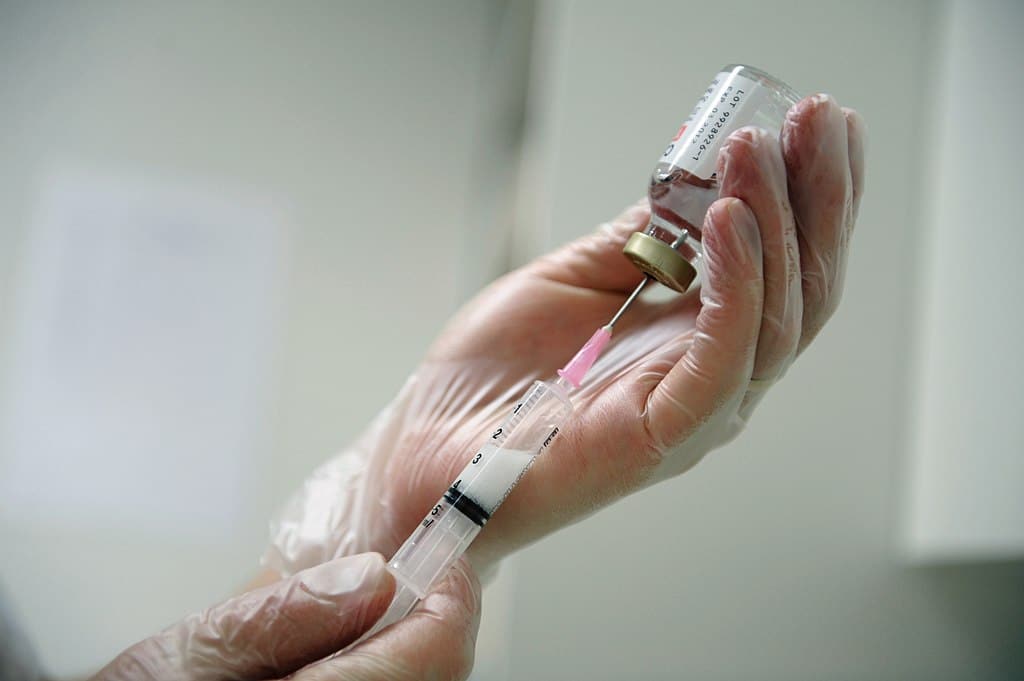

The US Food and Drug Administration (FDA) has approved a new shot to prevent HIV, offering a long-acting alternative to daily pills. The injectable medicine, called lenacapavir and sold under the brand name Yeztugo, is administered only twice a year. Clinical trials show it is highly effective in reducing new HIV infections.
The approval is seen as a significant milestone in HIV prevention, particularly for people who struggle to take daily medications. The manufacturing company, Gilead, stated that each injection would cost $14,109, a total annual price of $28,218.
The company noted this pricing is in line with other HIV prevention treatments and said it will work with insurers and health systems to broaden access.
Health advocates say the new dosing schedule could remove one of the biggest barriers to protection: adherence. This is “a game changer, not only for the United States, but around the world,” said Carl Schmid, executive director of the HIV+Hepatitis Policy Institute.
Daily HIV prevention pills, such as Truvada and Descovy, along with their generic versions, have long been the standard of care. Another injectable option, Apretude, is taken every two months after an initial loading period. However, following regular doses remains a challenge for many.
“It’s hard to take a pill every day … when it’s for prevention,” said Johanna Mercier, Gilead’s chief commercial officer. “We see adherence levels as low as 50% to 55%,” which limits the effectiveness of these medicines.
Dr. Paul Sax, an infectious disease expert at Brigham and Women’s Hospital, said the new option may appeal to people who don’t want or are unable to manage a daily routine. “The key is getting people to take (PrEP) and having them reliably do so,” Sax said, referring to pre-exposure prevention methods.
In clinical studies, lenacapavir showed strong results. One study in sub-Saharan Africa found the drug was 100% effective among women and adolescent girls.
Another study involving participants in the US, Brazil, and other countries showed a 96% drop in new HIV infections among cisgender men and gender-diverse individuals.
Schmid said the less frequent dosing could also benefit those facing stigma, mental health challenges, or unstable work situations, which can all interfere with daily pill-taking.
Despite the Affordable Care Act’s requirements to cover preventive care, activists point out that patients are sometimes charged for related lab work and visits. Patients must test negative for HIV before starting medication and undergo regular health checks while on it.
Lenacapavir’s success in reaching more patients will depend heavily on insurance coverage. While some insurers prefer lower-cost generics, Gilead said it is working to ensure Yeztugo is widely included in plans.
Globally, over 1 million people are newly infected with HIV each year, according to the World Health Organization. While around 10 million people need PrEP to meet prevention goals, only 2.5 million are currently taking it.
The FDA has approved a highly effective HIV-prevention medication.
In clinical trials, the drug nearly eliminated HIV’s spread among people given an injection every six months. pic.twitter.com/0IX82S1fUs
— Pop Base (@PopBase) June 18, 2025
In the United States, the Centers for Disease Control and Prevention reported more than 39,000 new HIV diagnoses in 2023. That same year, over 4,700 people died from complications linked to the virus.
A recent study estimated that 2.2 million Americans could benefit from HIV prevention medication. Nearly 80% of new US cases occur in men, mostly among gay or bisexual men.
Black and Latino individuals face higher infection rates but are less likely to access preventive medication than white patients. The South accounts for more than half of all new HIV cases in the country. “We hope to reduce those numbers and potentially get to a day when zero infections are reported,” said Mercier.
